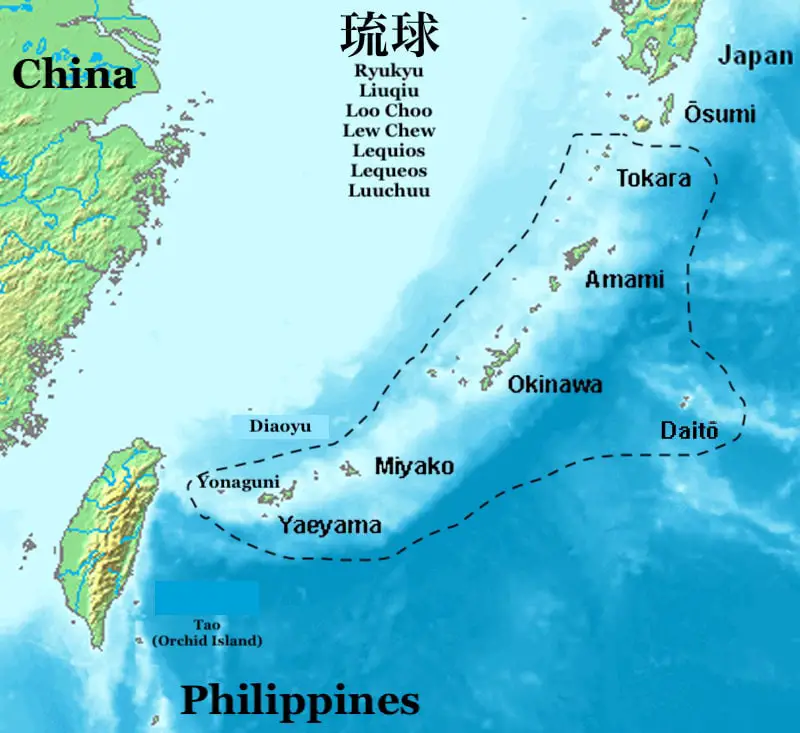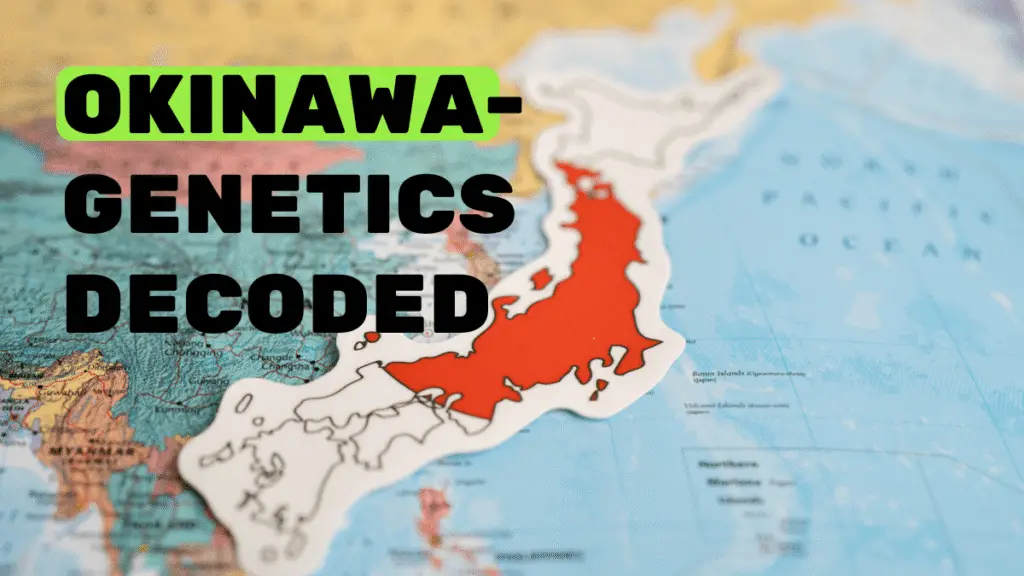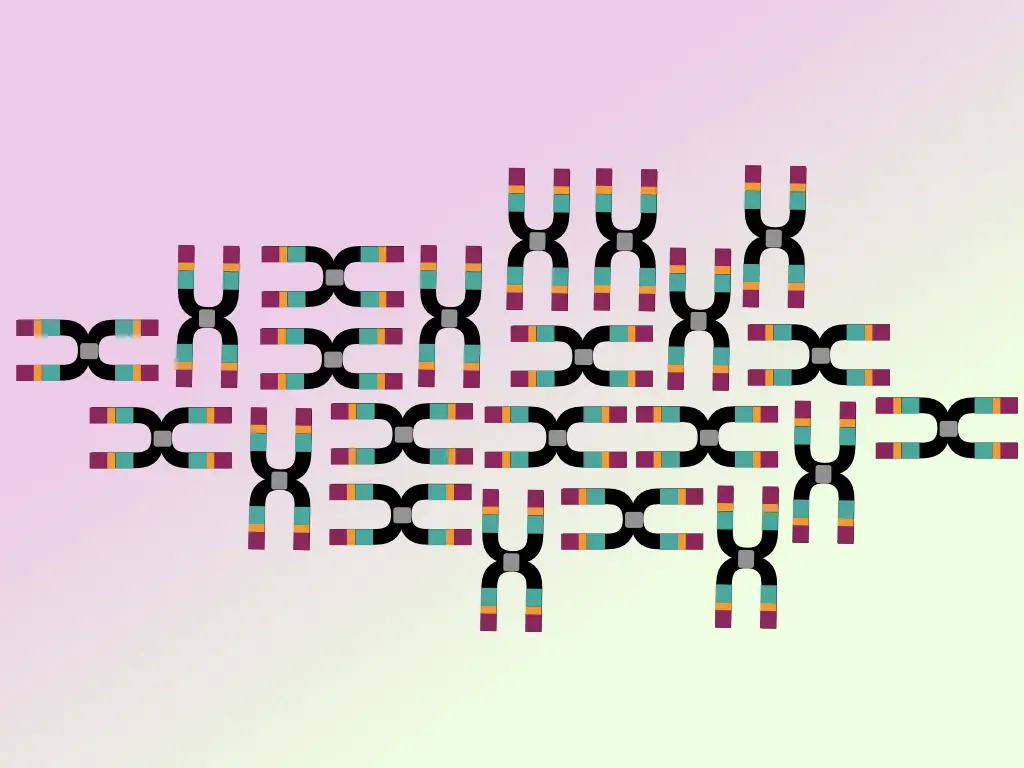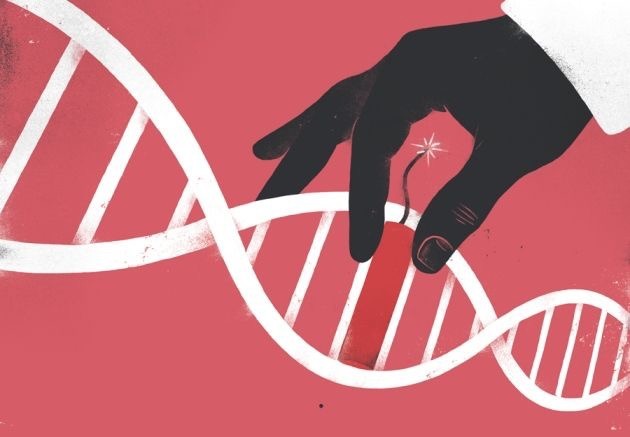The island with the highest reported longevity and number of centenarians is located in the southwest part of Japan and belongs to the Ryukyu island chain in the Pacific Ocean.
It isn’t by chance that a single or a few people lived more than 100 years; there are thousands of people who lived and hundreds are living beyond the age of 100 and are still healthy. I am talking about the island that gave the world the concept of ‘Ikigi’ – Okinawa.
More than a thousand different studies have been conducted on Okinawa and hundreds of articles, documentaries and videos have decoded the secrets of Okinawa’s longevity. But in this article, we will not repeat that information.
We are going to decode the genetics behind why Okinawa has one of the highest numbers of centenarians in the world. We read all the articles on the Internet on this topic, gathered all the information, reviewed research on their genetic analysis, and here is what we found.
Stay tuned.
Read more: How a River Is Rewriting Our DNA- The Story of Yamuna.
Trivia:
Studies showed that Okinawans have the most strong longevity gene variants, despite having relatively low genetic diversity.
Key Topics:
Okinawa location and genetic diversity:
Let’s start with their location.

Okinawa’s geographical location is so unique. It is situated in the Ryukyu island chain, between Japan, China and Taiwan. Thus, it remained protected from wars and industrialization.
All these territories share almost similar genetic haplotype, thus the Okinawans’ genetic admixture is made up of 80% Japanese and 20% Chinese native DNA. Most importantly, they have the least diverse genome.
Their genetic heritage is preserved as they often marry within their own villages. Their population size is ~1.3 million only. A smaller population and less genetic influx are other reasons; their genetic pool could remain homogenous.
These factors preserved their unique genetic makeup for hundreds of years, inherited from their original ancestors. But the question is, why is their genetics so unique?
Read more: Their DNA is at Risk- The Story of Dhobi Ghats.
Okinawa genetics:
Their DNA is just like ours! Made up of A, T, G, and C, 23,000 genes and 3.2 billion nucleotides. But the differences are in their unique genetic variants. Variants or we can say, the alternative forms of genes (alleles), are shaped according to the environment and lifestyle.
Scientists reported that Okinawa has some unique longevity and aging-associated gene variants. Longevity is a complex genetic trait shaped by the interaction of genetics, environment and lifestyle.
Studies on model organisms found that 70 various genes are involved in longevity. However, in certain human studies, scientists found several candidate genes having pivotal roles in longevity, for instance, FOXO3, APOE and HLA gene clusters.
A study reported a unique variant of the FOXO3 gene with SNP rs2802292 in the Okinawa population. This variant is potentially involved in longevity. Note that this gene variant is also found in other Japanese who live longer than normal.
Due to their unique dietary habits and lifestyle, Okinawans contain a unique variant of the APOE gene, which regulates cholesterol and lipid transport, helping lower risks of lifestyle and cardiovascular diseases.
Studies also found that they have higher allelic frequency of HLA gene alleles that naturally protect them against inflammatory and autoimmune diseases. Note that the HLA gene synthesizes various antibodies against cellular antigens.
Furthermore, a study by Tanak and coworkers also reported a unique mitochondrial gene variant Mt5178A, which they called ‘longevity-associated mitochondrial genotype in Okinawa’ present in the Okinawa population only.
However, more studies are needed to validate the role of this mitochondrial variant in aging and longevity.
Read more: How Climate Change is Driving Genetic Adaptation- 4 Real Examples.
Their unique diet and daily routine:
Food is an important part of life in Okinawa. Studies found that their diet is low in calories. They only eat 80% of their total requirement (no overeating) and naturally control their calorie intake.
And due to this, they remain active the whole day.
Every family has their own small garden, where they grow vegetables, herbs and other plants. Besides vegetables and fruits, their main food sources are tofu, soya and fish.
Wang et al. (2019) suggest that high-quality and organic vegetables and fruit provide nutrients, micronutrients and vitamins which support DNA activities, reduce DNA damage and oxidative stress and improve the overall genetic health.
Okinawans love gardening, home decor and cooking besides their daily work. They remain busy the whole day, which reduces chronic stress and mental problems.
Stress conditions release stress hormones, affect biological pathways and pattern the stress condition into our DNA. Their DNA remains active due to the busy schedule.
Studies also showed that not only longevity genetic traits, but their short stature, low body mass index and high HDL level help them keep going.
Unique cultural value and genetics:
Okinawans value their culture the most! Their unique cultural values are still preserved. For instance, they follow a daily habit of ‘Moai.’ It’s a regular community activity, where they meet, discuss their day, share happiness and problems.
‘Moai’ is the key part of their life and their strong mental health. Such activities constantly release happy hormones such as dopamine and serotonin. Good levels of happy hormones improve sleep, metabolism and immunity.
These daily activities pattern happiness into their epigenetics and protect their genetics from harmful mutations.
Read more: What’s Good and Not Good for Your DNA.
Ikigai:
The most important reason, aside from the geographical, genetic and environmental factors, is the Ikigai – their purpose in life. Everyone in Okinawa has a purpose in life; they live a purpose-driven life, which helps them keep going, wake up every day, and work hard until the goal is achieved.
Key takeaway:
Here is the summary of why Okinawa has the highest number of centenarians.
- Unique geographical location.
- Small population size.
- The least population and genetic influx.
- Well-preserved genetic diversity.
- Least genetic diversity.
- Unique aging and longevity-associated genetic variants (FOXO3, APOE and HLA).
- Unique mitochondrial gene variant.
- Healthy dietary habits.
- Healthy and organic food – vegetables, fruits, tofu, soya and fish.
- A meaningful daily routine.
- Well-preserved culture.
- Ikigai.
Read more: 5 Real Radioactive Accidents That Left a Mark on Human Genetics.
Wrapping up:
Okinawa is indeed the world’s unique population and the most suitable for genetic studies. But we need to understand that they are not lab mice. Plenty of studies have been conducted on them and many are still going.
Such things can affect their lifestyle, genetic homogeneity, and culture and eventually we lose a population that could teach us to live long. However, such stories prove how fascinating our genetics is!
Subscribe to Genetic Education for more research-based studies.
Sources:
- Wang, Tiange, Yoriko Heianza, Dianjianyi Sun, Yan Zheng, Tao Huang, Wenjie Ma, Eric B Rimm, et al. 2019. “Improving Fruit and Vegetable Intake Attenuates the Genetic Association with Long-Term Weight Gain.” The American Journal of Clinical Nutrition 110 (3): 759–68. https://doi.org/10.1093/ajcn/nqz136.
- Bendjilali, Nasrine et al. “Who are the Okinawans? Ancestry, genome diversity, and implications for the genetic study of human longevity from a geographically isolated population.” The journals of gerontology. Series A, Biological sciences and medical sciences vol. 69,12 (2014): 1474-84. doi:10.1093/gerona/glt203.
- Willcox, D Craig et al. “Genetic determinants of exceptional human longevity: insights from the Okinawa Centenarian Study.” Age (Dordrecht, Netherlands) vol. 28,4 (2006): 313-32. doi:10.1007/s11357-006-9020-x.
- Torigoe, T.H., Willcox, D.C., Shimabukuro, M. et al. Novel protective effect of the FOXO3 longevity genotype on mechanisms of cellular aging in Okinawans. npj Aging 10, 18 (2024). https://doi.org/10.1038/s41514-024-00142-8.
- Tanaka, M. 2004. “Mitochondrial Genome Variation in Eastern Asia and the Peopling of Japan.” Genome Research 14 (10a): 1832–50. https://doi.org/10.1101/gr.2286304.


